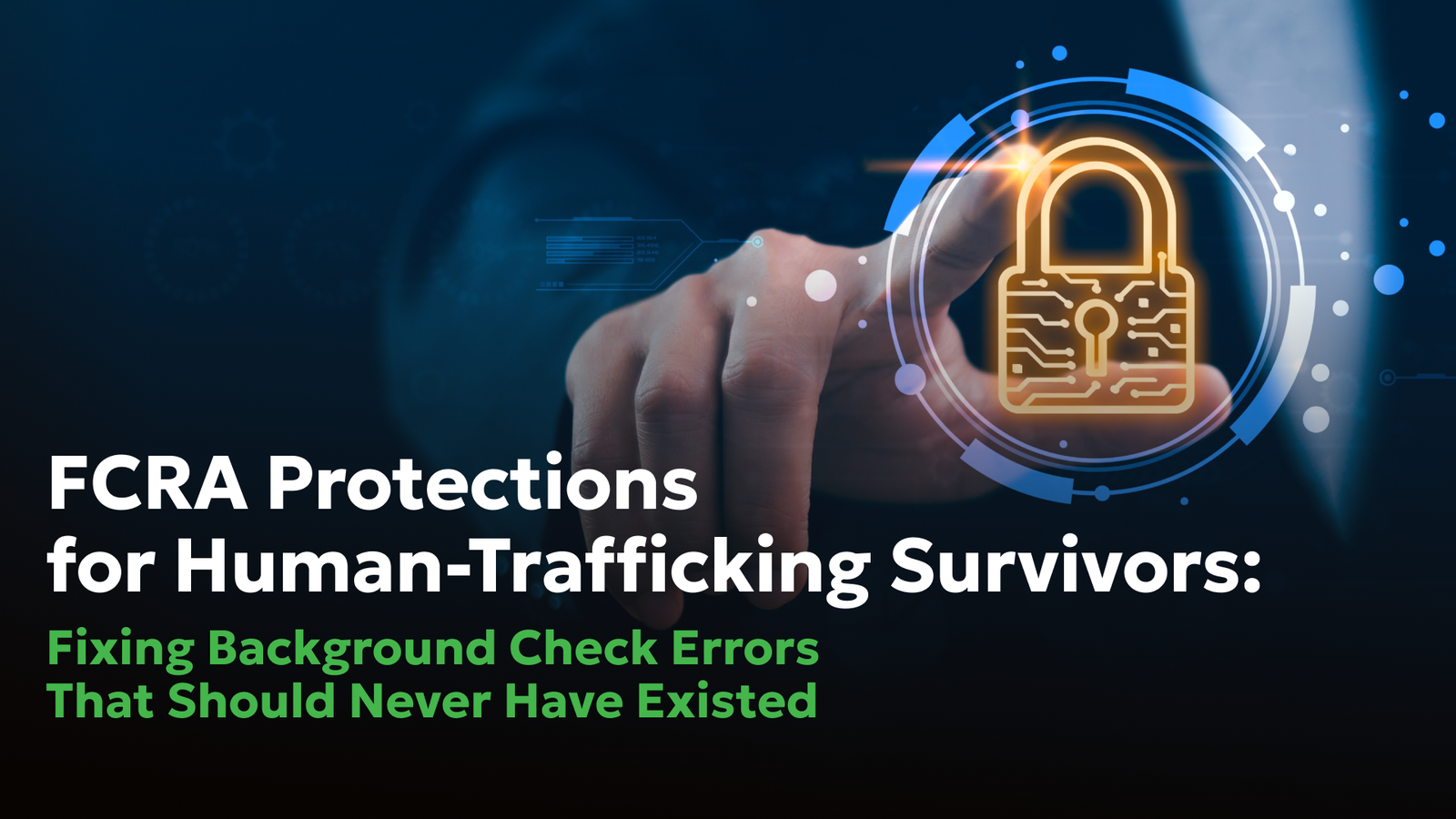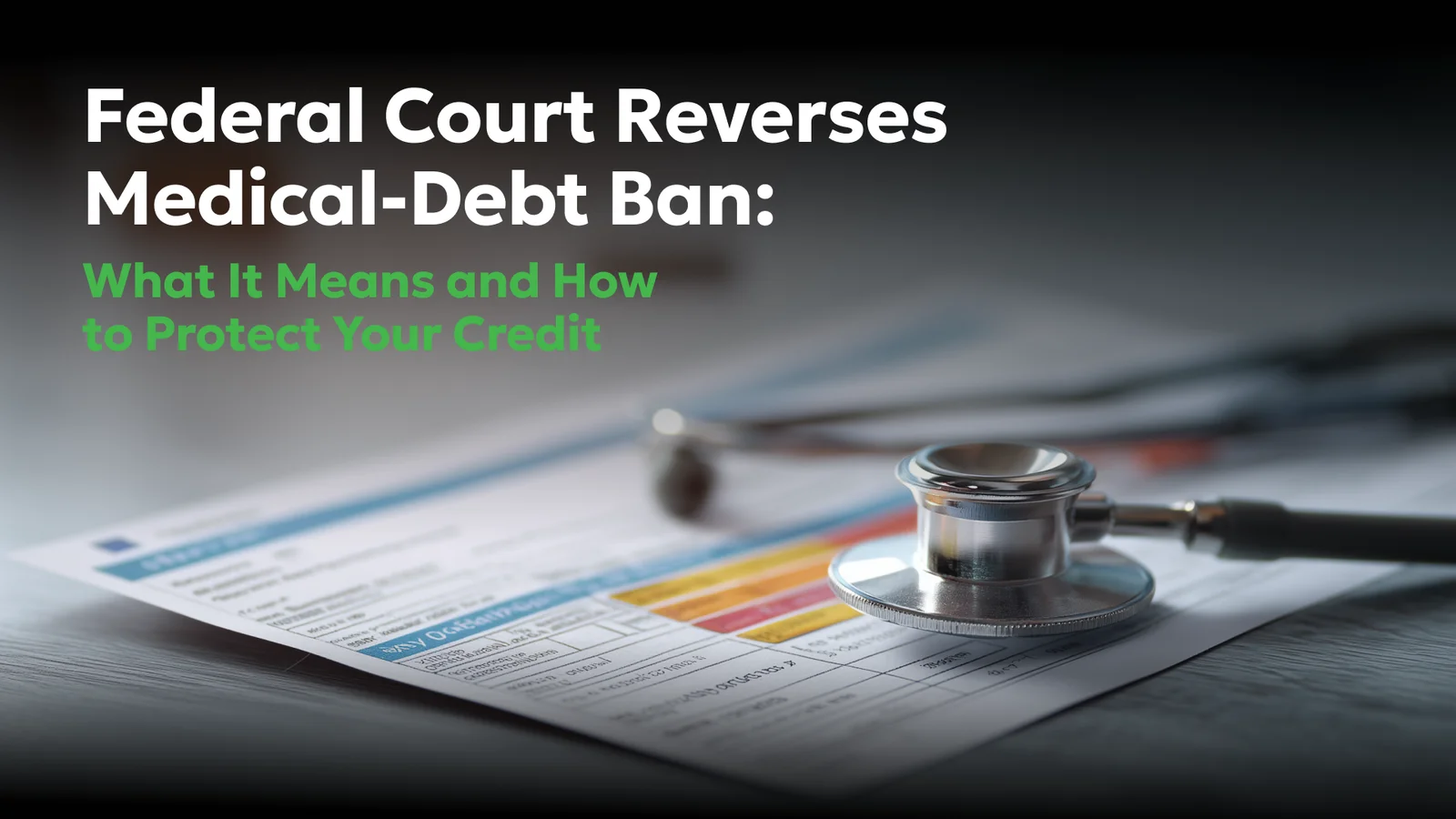How to Dispute Credit Report Errors with American Express
- Blog
- Credit Reporting Inaccuracies
How to Dispute Credit Report Errors with American Express

American Express MyCredit Guide is susceptible to the same errors as other credit reports. Learn how to fix errors.
American Express MyCredit Guide provides its subscribers with their Experian credit reports and FICO scores along with American Express’s insights. If there are any errors or inaccuracies in any report or data distributed by American Express, you have the right to dispute it. Consumer Attorneys can help.
People have used American Express’s various credit cards for decades. With the introduction and growth of its MyCredit Guide service, American Express has now entered the world of credit reporting. Any credit reporting, including MyCredit Guide by American Express, is susceptible to errors. This article offers insight into how consumers should confront those errors and how American Express must handle those errors.
Credit reporting errors—whether from the “big three” consumer reporting agencies (CRAs) or from more niche credit reporting companies—can cause significant stress, substantial financial harm, reputational damage, and lost opportunities. Any and all credit reporting falls under the ambit of the Fair Credit Reporting Act (FCRA), the federal law that provides consumers rights in the credit reporting arena and imposes obligations on CRAs.
As attorneys for consumers, the attorneys at Consumer Attorneys are here to help you understand how to dispute these errors, specifically with American Express through their MyCredit Guide service. This guide will provide step-by-step instructions and essential tips to ensure your dispute is handled effectively.
Understanding MyCredit Guide by American Express
American Express offers a service called MyCredit Guide, which provides consumers access to their FICO Scores and Experian credit reports. This service is free for everyone, not just American Express cardholders. MyCredit Guide includes tools to help you understand your credit score and monitor changes. If you find errors in your credit report, it is crucial to address them promptly to avoid potential negative impacts on your financial health.
Experian
Experian is one of the three major CRAs in the United States, along with Equifax and TransUnion. It collects and maintains information on over one billion individuals and businesses worldwide, providing crucial data that influences credit decisions. Experian gathers credit data from various financial institutions, including banks, credit card companies, and lenders, which is then used to generate credit reports. These reports include details about credit accounts, payment history, credit inquiries, and public records such as bankruptcies. Experian compiles this data, produces reports, and then sells the reports to lenders, mortgage companies, landlords, employers, lenders, and anyone else in the economic ecosystem that needs to assess someone’s creditworthiness.
Fair Isaac Corporation (FICO)
The Fair Isaac Corporation, commonly known as FICO, is a data analytics company that focuses on credit scoring services. Founded in 1956, FICO developed the FICO score, a widely used credit scoring model that assesses a person's credit risk. FICO scores range from 300 to 850 and are based on data from credit reports provided by the three major credit bureaus: Experian, Equifax, and TransUnion. The score is calculated using five key factors: payment history (35%), amounts owed (30%), length of credit history (15%), new credit (10%), and types of credit used (10%). These factors are weighted differently to determine an individual's creditworthiness. Lenders rely on FICO scores to make lending decisions. The decisions include loan approvals, interest rates, and credit limits.
Because American Express MyCredit relies on these two entities, any dispute with an American Express report could be with one or all three of these entities.
Identifying Common Credit Report Errors
Before diving into the dispute process, it’s essential to recognize common errors that can appear on your credit report:
| Category | Description |
|---|---|
| Incorrect Personal Information | Mistakes in your name, address, or Social Security number. |
| Account Errors | Accounts that do not belong to you or incorrect account details such as balances or payment history. |
| Duplicate Accounts | The same account listed multiple times. |
| Outdated Information | Information that should have been removed after a certain period. |
| Fraudulent Accounts | Accounts opened in your name without your knowledge. |
Any error - from a seemingly insignificant misspelling to an outdated credit card balance - can give lenders a false perception of the subject of that report. Therefore, identifying these errors early can help you dispute them more effectively.
Steps to Dispute Credit Report Errors
When consumers find incorrect information in their American Express MyCredit Guide, it's crucial to address these inaccuracies promptly. Incorrect details on a credit report can negatively impact credit scores, leading to higher interest rates, denied credit applications, and other financial setbacks. To ensure accuracy, consumers should dispute any incorrect information with both American Express and Experian. However, it's essential to understand the specific roles and responsibilities in this process.
American Express MyCredit Guide pulls credit information from Experian and utilizes Fair Isaac's (FICO) scoring model. As a result, the data discrepancies often originate from Experian's records. Therefore, while notifying American Express about the errors is essential for transparency and record-keeping, the primary dispute should be directed at Experian. Experian is the credit bureau that maintains the credit information reported by various financial institutions and lenders.
To dispute inaccuracies, consumers can follow these steps:
| Step | Description |
|---|---|
| Identify the Errors | Carefully review the credit report from American Express MyCredit Guide to identify incorrect personal information, account errors, duplicate accounts, outdated information, or fraudulent accounts. The FCRA provides that consumers can receive one free credit report per year. That practice has since evolved so that consumers can get a free credit report every week. |
| Contact a Consumer Protection Lawyer | Identifying the source of the inaccuracy and the damage it has already caused (i.e. to whom has Experian and/or American Express sent this inaccurate information?) will take some analysis. That analysis will determine how best to proceed to preserve your rights, begin a dispute, and, if necessary, begin legal action. |
| Notify American Express | Contact American Express to inform them of the errors. While they may not be able to correct the information directly, they can provide guidance and documentation to support the dispute process. |
| Dispute with Experian | File a dispute with Experian via certified U.S. mail. Your lawyer can explain this in further detail. Provide detailed explanations and supporting documentation, such as account statements or identity verification documents, to substantiate the claim. |
| Follow Up | After submitting the dispute, regularly check the status of the claim through Experian's website. Experian is required to investigate the dispute, typically within 30 days, and provide a response regarding the resolution. |
By addressing disputes with both American Express and Experian, consumers ensure that all parties involved are aware of the inaccuracies. This dual approach helps maintain the integrity of credit reports and ensures that corrections are accurately reflected in future credit assessments. Timely and thorough dispute management is key to safeguarding one's financial health and creditworthiness.
The Role of a Credit Report Dispute Attorney
If your dispute is not resolved satisfactorily, or if you face challenges during the process, your credit report dispute attorney will be the person upon whom you rely to hold Experian and American Express accountable. Errors do damage. Attorneys for consumers know how to navigate the complexities of credit reporting disputes and can help ensure your rights are protected and you get the compensation you deserve.
Your credit report is too important to your financial health to allow mistakes to damage it. If you are enrolled in American Express MyCredit Guide, review the information it gives you for accuracy. If there are any mistakes or inaccuracies, let us know.
If you are not a member of American Express MyCredit Guide but want to do something proactive, request a copy of your credit reports form the three big CRAs - Experian, Equifax, and TransUnion - and review them. Let us know if you find any mistakes.
Frequently Asked Questions
Yes, American Express reports to consumer reporting agencies (CRAs). Like other major credit card issuers, American Express regularly provides information about your credit accounts to the three major CRAs: Experian, Equifax, and TransUnion. This information includes your payment history, credit limit, balance, and account status. Making payments on time can positively impact your credit score, while missed or late payments can have a negative effect. It is important to maintain good credit habits with your American Express card, as the information they report will influence your overall creditworthiness, your ability to obtain loans, the interest rates at which you get those loans and credit cards, housing, and jobs.
There is a difference between negative information and inaccurate information. To remove inaccuracies from your credit report, start by reviewing your credit report for accuracy. Dispute any incorrect information with the three main consumer reporting agencies (CRAs): Experian, Equifax, and TransUnion. A credit reporting lawyer at Consumer Attorneys can help you with this. Provide supporting documentation to substantiate your claims. There is no way to remove accurate though negative information except to work diligently to make payments on time and rejuvenate your credit score. If non-payment or inability to pay is the issue, you can also negotiate with creditors. Most will be eager to receive some form of payment. If the items are valid but have been resolved, ensure they are marked as such. Consistently practicing good credit habits over time will also naturally improve your credit report.


Daniel Cohen is the Founder of Consumer Attorneys. Daniel manages the firm’s branding, marketing, client intake and business development efforts. Since 2017, he is a member of the National Association of Consumer Advocates and the National Consumer Law Center. Mr. Cohen is a nationally-recognized practitioner of consumer protection law. He has a we... Read more
Related Articles




R
ONGS™You pay nothing. The law makes them pay.







